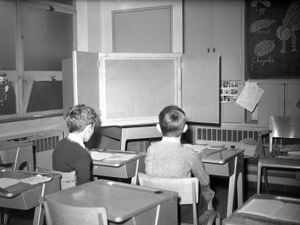Hall campaign deserves praise
There is now a clear obligation to make sure the people who actually saved Bilston Town Hall from certain destruction receive the recognition they deserve.
There is now a clear obligation to make sure the people who actually saved Bilston Town Hall from certain destruction receive the recognition they deserve.
Inevitably, with the passage of time, many of them are sadly no longer around, and most of those who remain must be well into their 70s or 80s. This makes it all the more important that their achievement is publicly acknowledged sooner rather than later.
Without doubt, but for their efforts it would have been reduced to a pile of rubble and replaced by a traffic island that the supporters of demolition envisaged for the site. Recently, older residents have been recalling the weak argument used to justify their intentions – basically that this was essential for controlling the constant flow of heavy vehicles through the town centre.
This was the difficult situation facing activists at the launch of the Save Our Town Hall Campaign on Thursday, September 23, 1971. Things then went from bad to worse at the start of 1977 when the results of a survey revealed that it would cost upwards of £75,000 to simply restore the building.
Under the severe financial climate of that period, there was little chance of that money being found. Then, out of the blue, the almost hopeless position was turned around by a feature in the Wolverhampton Chronicle in February 1977 highlighting Bilston town centre as a depressing location comprising derelict land littered with rubbish and more than 40 decaying or empty shops.
The article concluded that far from being demolished, the Town Hall should be refurbished to bring new life to Bilston.
Because of its impact, a Town Hall public meeting was jointly organised by members of the town's tenants and church groups, together with Bilston East's Labour Party for Monday, March 14, 1977. Meanwhile, Holy Trinity Church's parish priest Father Philip Casey made a public appeal for every true Bilstonian to attend the meeting.
It had the desired effect because on that historic night, a packed gathering displayed such an angry reaction that the policy of demolition was eventually quietly dropped.
Because the events are part of Bilston's proud history, the details need to be placed on the website of every local schools.
Finally, the commemorative plaque proposed by the Black Country Memories Club will hopefully be approved.
Tom Larkin, Black Country Memories Club.





